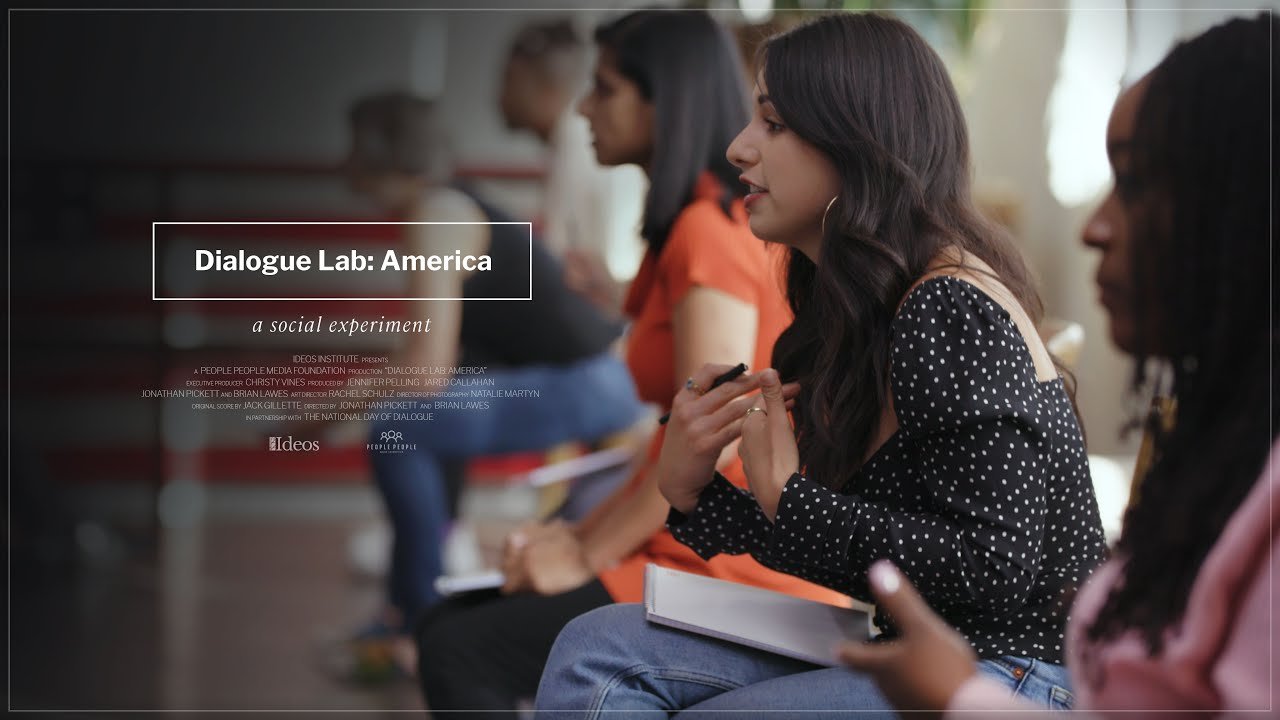
Dialogue Lab:
AMERICA
An Ideos Institute Documentary Film
What happens when twelve Americans - from across the political and ideological spectrum - attempt to engage in dialogue on some of our country’s most divisive issues? Issues like politics, race, and abortion? Or even faith and religious beliefs?
Well, we decided to find out.
WATCH THE FILM: 57:23

In July of 2021, 12 strangers joined Ideos Institute in an audacious social experiment: to test whether dialogue is possible in today’s polarized culture; and if so, how it might be the first step in healing our nation. The hour-long documentary film chronicles the group’s journey as each individual shares their story, discovers common ground, and forges a path towards love and mutual understanding.
Go Behind the Scenes
Click on the images for lightbox view.



















With gratitude to the Tsuha Foundation, Vientos Dios Foundation, and the many individuals who’s support made this film possible.

